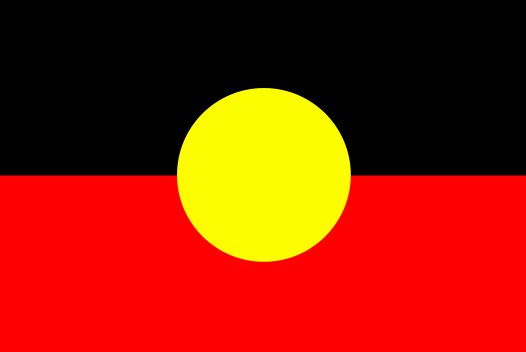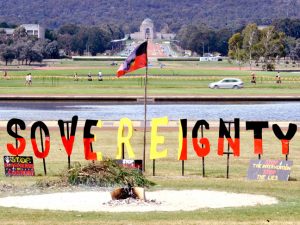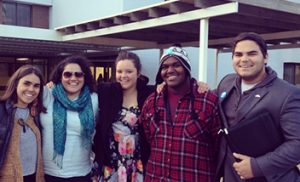Karrina Nolan and Amelia Telford facilitated an excellent session for our August MCN.
After the usual networking Karrina set the context that needs to be front of mind when working with Indigenous communities:
- Over 50% of Aboriginal and Torres Strait Islander people are under 35, but are also 25-28 times more likely to be detained in the juvenile and criminal justice system than any other young people.
- Since 2000 there has been a 46% increase in the imprisonment of ATSI women.
- There is a 12 year life expectancy gap between Indigenous and non-Indigenous men – the government plans to increase the retirement age would mean a large proportion of Aboriginal men wouldn’t live to receive the aged pension.
- There are significant housing shortages in remote communities, an average of 9 people per home in some places.
- Getting a job of equal value to a non-Indigenous person in schools and hospitals in remote areas is a challenge. ATSI people are the most researched yet least employed.
- For many young Indigenous people in the bush making it through secondary school is a big achievement, and non-Indigenous Australians are 4 times more likely to have obtained a bachelor degree or higher. This further compounds access to employment.
To quote Karrina:
There is also an amazing resilience among Aboriginal and Torres Strait Islander people, and many different stories of survival of communities doing well, programs and campaigns making wins and culture and connection to country remaining strong. But huge disadvantage is the context from which so many ATSI peoples are trying to mobilise and organise. People are so often dealing with the day to day crises and basic needs. With immediate needs beings so overwhelming it seems there’s sometimes limited capacity for people to get beyond band aids to root causes of the problem.
Karrina and Millie then ran an activity which explored the history of Indigenous resistance and campaigns. Some of the key points on the timeline include:
- The 60,000 years prior to invasion, and survival since.
- Frontier Wars
- 26 January 1938 – Day of Mourning and Protest
- 1946 Pilbara Strike
- 1965 Freedom Rides
- 1967 Referendum
- 1966-75 Gurindji Strike – Wave Hill Walk-Off
- 1972 – Present Aboriginal Tent Embassy
- 1992 Mabo Decision
- 2013 Protection of Walmadan (James Price Point)
- 2014 Victory for Traditional Owners over the Muckaty waste dump
And of course, many more! For more information see Gary Foley’s Koori History Project and the Collaborating for Indigenous Rights website.
A significant observation was that non-Indigenous allies have been involved all the way along – but this involvement has often been contested. It was acknowledged that it is key for struggles to be led by Traditional Owners or other Aboriginal and Torres Strait Islander leadership, with allies prepared to follow that lead and make their own contributions. Where coalitions have operated this has often been where shared interests pull individuals and groups together, giving strong incentive to work through difficulties.
Millie Telford shared her experience of increasing the involvement of Aboriginal and Torres Strait Islander people in a pre-existing majority white organisation. Some of the things that are working well:
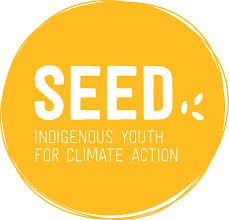 Developing a separate identity within the organisation. The network is known as Seed and has its own logo. This has been more effective than promoting the general AYCC brand, increasing ownership and engagement amongst Indigenous youth.
Developing a separate identity within the organisation. The network is known as Seed and has its own logo. This has been more effective than promoting the general AYCC brand, increasing ownership and engagement amongst Indigenous youth.- Framing climate activism in ways which resonate for Indigenous youth – as part of a long history of custodianship of the land.
- Building the Seed Summit where Indigenous climate activists will gather from around the country. Please spread the word about Seed to help make this historic summit amazing!
We then moved in to small groups to discuss current campaigns and what is working well. Each group also considered the question: If you were starting a campaign or other activity involving Aboriginal and Torres Strait Islander people or communities, what would your first 3 steps be?
Some of the tips that came up for non-Indigenous allies:
- When building relationships take time, go slow, prioritise face-to-face contact and be respectful.
- Don’t assume that your campaign will be high priority, Indigenous communities have plenty else to deal with.
- Follow established principles of engagement or protocols. Ask for advice about the right way to go about things.
- Consider what might cause conflict or offense and work to minimise this. If conflict does occur commit to working through it.
- Build capacity by investing in training and mentoring for Indigenous campaigners. Provide opportunities for Indigenous leadership in your campaigns.
- Show your organisation’s commitment by amending its constitution to include a clause recognising Aboriginal sovereignty. Use this process to start a conversation in your organisation. (Thanks Clare Land for this tip)
- Pay the Rent – allocate a portion of your group’s income or event revenue to Traditional Owners as recognition of sovereignty. This could be through a donation to the local TO’s council or a related organisation.
After more?
- Listen to Fire First Wednesdays 11am-12pm on 3CR radio, 855AM.
- Check out the Koorie Heritage Trust’s cultural awareness training and heritage walks around Melbourne.
- Access cultural awareness training through the Victorian Aboriginal Community Controlled Health Organisation.
- Check out Melbourne Uni Student Union’s anti-racism workshops
About the presenters
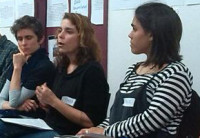
Karrina Nolan and Amelia Telford at MCN – plus solidarity activist and writer Clare Land on the left.
Karrina Nolan is of Aboriginal, Irish, English heritage a descendant of the Yorta Yorta people. Karrina is an activist, organiser and community cultural development facilitator with 20 years experience working for social justice. She has worked with many community organisations, women’s services and environmental justice groups, and has a long history of working on community campaigns both in Australia and internationally. Karrina coordinated the Fairwear Campaign, a national campaign working to achieve wage justice for home-based clothing workers. She has developed and delivered programs in remote and regional Aboriginal and Torres Strait Islander communities including the Stylin’ UP Regional program working with young people and communities to develop confidence, pride and talk up their issues.
Karrina coordinated the Straight Talk program with Oxfam which works with Aboriginal and Torres Strait Islander women to be effective change makers. Straight Talk is about supporting our Aboriginal and Torres Strait Islander women to gain the tools to be more strategic and focused in making things different and more just. She is currently the National Manager of the Aboriginal and Torres Strait Islander Peoples Program with Oxfam Australia.
Amelia Telford is a young Bundjalung woman who grew up in a close-knit family on the north coast of NSW where she developed a strong passion for social and climate justice. Amelia’s Aboriginal and South Sea Islander heritage derives from her father and New Zealander heritage from her mum. In her role with the Australian Youth Climate Coalition, Amelia is building Seed, a national network of Aboriginal and Torres Strait Islander young people to lead the youth climate movement in Australia and to stand up for action on climate change and sustainability. Amelia has just been awarded National NAIDOC Youth of Year for her commitment to building a more just and sustainable future for all young people.
Many thanks to Karrina and Millie for leading such an excellent session, and to everyone who was part of the discussion.

